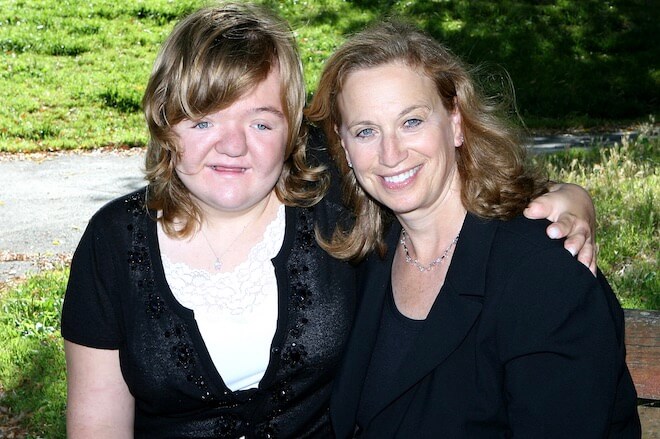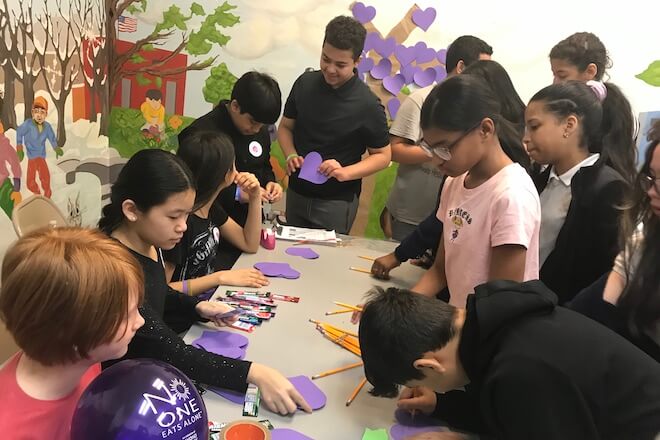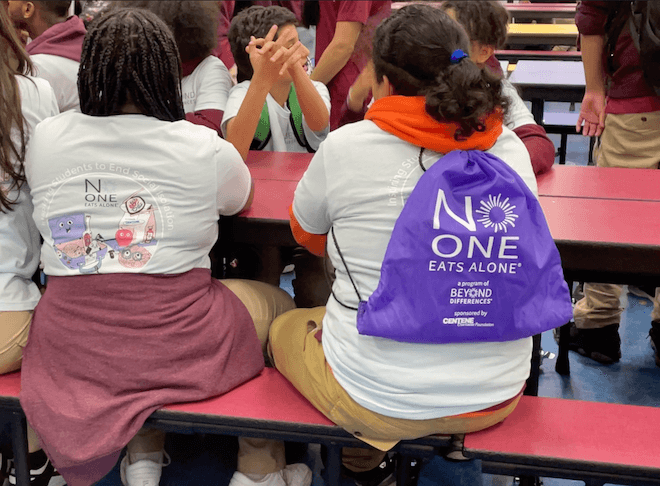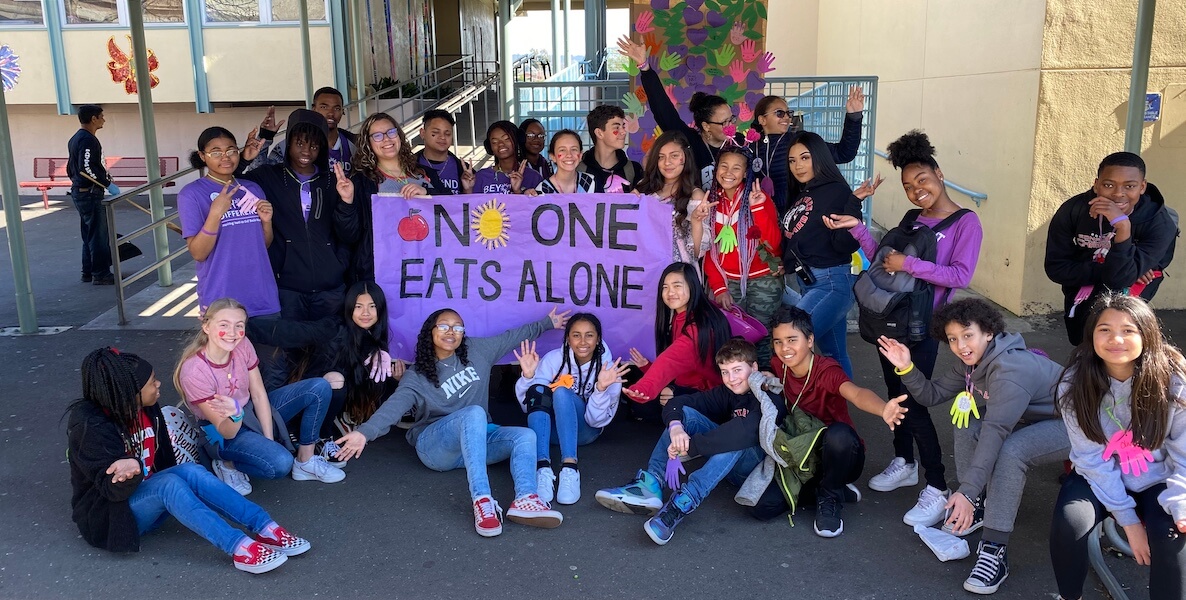Laura Talmus felt helpless when her then-11-year-old daughter Lili kept calling her from school in tears. “It’s pretty nerve-racking when you’re getting phone calls from your daughter who’s just crying and begging you to come pick her up from school,” Talmus remembers. “The lunch breaks were the hardest.” After trying some interventions in the school with little success, Talmus and her husband Ace Smith eventually decided to homeschool Lili with private tutors.
Lili Rachel Smith was born with Apert syndrome, a rare genetic condition that made her look different and contributed to her feeling invisible and left out at school. According to her mom, she was not bullied by her classmates and did have some friends. “But in sixth grade, the kids sent the message by turning their backs in the cafeteria to let her know she wasn’t welcome to join them at their table,” Talmus says, describing what she calls “the terrible social atmosphere” at the school. “Lili spent most lunch breaks hiding in the library or the bathroom stalls, eating lunch by herself.”
After her daughter passed away from medical complications in her sleep at age 15 in 2009, Talmus put together a video celebrating her life. When she showed the video, Lili’s classmates were shocked to realize how isolated Lili had felt, and Talmus understood that a lot of kids felt disconnected like her daughter had: “I was absolutely blown away when I saw how many kids raised their hands and wanted to talk about how they felt isolated.”
The next year, Talmus, a professional fundraiser, and her husband channeled their grief into forming Beyond Differences, a nonprofit that focuses on raising awareness about social isolation in youth and providing solutions. Since that time, the need has only become more clear: U.S. Surgeon General Vivek Murthy raised the alarm last year when a study found rates of loneliness reported among young adults have risen every year for more than a decade. Teenagers spent nearly 70 percent less time hanging out with friends in person in 2020 than they did in 2003 (down from 150 minutes a day two decades ago to 40 minutes a day). The study notes that the Covid-19 pandemic accelerated the trend.

Ending isolation by connecting kids
Talmus believes the social isolation her daughter experienced is affecting students all over the country and contributing to serious health issues, mental health problems, suicide and school violence. “They have trouble connecting, trouble feeling safe,” she says. Beyond Differences started with Lili’s school and four other schools in California’s Marin County, where the family lives, and has now grown to reach over one million students in all 50 states.
On February 16, 2024, 2,500 schools in all 50 states will participate in No One Eats Alone Day, a day of action created by Beyond Differences that encourages fifth through eighth graders to mingle, make new friends and become more aware and proactive about social isolation, especially at lunch.
“For many children, the lunch break or recess are the worst parts, so we started with that.” — Laura Talmus of Beyond Differences
“No One Eats Alone is completely rooted in the experience Lili had,” Talmus explains. “For many children, the lunch break or recess are the worst parts, so we started with that.” Beyond Differences sends backpacks or “Belonging Boxes” with a lesson plan, games, toys, art projects, stickers and conversation starters to participating educators, at no cost to the schools. Conversation starters could revolve around sports, video games or food, or be playful icebreaker questions like, “Would you rather have scales or fins?”
“The best [part] is that it’s intended to be led by students for other students,” Talmus says. “This is about making inclusion a little bit more cool and acceptable. All tides lift boats.”
Letting older students lead
Crucially, the curriculum has been partially developed by slightly older peers, a group of 36 high school-aged student leaders across the country who form the nonprofit’s National Teen Board. “Their mission about ending social isolation in schools really struck me,” says Paarth Sharma, an eloquent 16-year-old high school student from Portage, Michigan, who has been on the Teen Board since November 2022. “A lot of the curriculum they develop is what I would have loved to have when I was in middle school.” Sharma believes his engagement in the nonprofit has made him able to better identify social isolation and be more inviting, for instance, when a new student joins his school.

Kids participating in No One Eats Alone Day this year will play an artsy game called “Let’s Grow” that Sharma helped develop: “It’s an art kit with elements like flowers, stems and clouds that the kids can write on,” he explains. “The flowers represent things that make them shine, the stems things that build them up, the roots can be things that make them grow, and the clouds represent something they struggle with.” In the end, the teacher will tape the contributions together as a “garden” that represents the seeds of connection and the potential of growth.
Sharma chose the “queer visibility” section of the national curriculum as his focus. In their monthly Zoom meetings, the teenagers on the board talk about strategies to make sure school libraries carry books that are written by LGBTQ+ authors and feature LGBTQ+ characters as well as how to educate teachers and administrators and ways students can safely express their identity in conservative states.

Success
“No One Eats Alone cuts across all those lines whether or not your state requests or requires teachers to teach social and emotional learning or health education,” Talmus says. “There has never been a case where anybody said, ‘You can’t bring No One Eats Alone to our school or our state.’”
With support from the New York City Department of Education, 10 New York schools measured the impact of No One Eats Alone in 2019 and found that key indicators, including “awareness of social isolation, frequency students intervened when they saw social isolation, student leadership, youth voice, and social emotional learning all increased significantly from beginning to end-of-year for seventh grade students who attended three or more Beyond Differences events.”
One principal quoted in the study says: “Beyond Differences has made an impact on our school community and fostered more student voices. Students are more aware that they can intervene when bullying issues come up in the school, and they are also more careful about using technology in a positive manner.”
“A lot of the curriculum they develop is what I would have loved to have when I was in middle school.” — Parth Sharma, of Beyond Differences’ National Teen Board
Two other programs, Know Your Classmates and Be Kind Online, complement the lunch initiative. Classes can start in the fall with the Know Your Classmates program, which creates activities to help kids eliminate barriers to getting to know one another and understand others’ cultures, identities and stereotypes. And Be Kind Online “educates children about social media, identifies online behavior that leads to social isolation and creates opportunities for kids to engage positively with one another,” Talmus explains.
Talmus is convinced that the pandemic lockdowns made the initiatives more needed than ever. “I do believe that children are feeling less safe,” she says, and refers to a recent study that found 71 percent of children are still struggling with the return to school since the lockdowns. “There is absolutely no easy place in America for children to be growing up right now.”
She feels that she is honoring Lili’s life by starting a national movement, enabling students to “just even take that first step to get to know somebody that they normally don’t sit with,” she says. “I have seen so many friendships blossom.”
A version of this article originally appeared in Reasons to be Cheerful.
Michaela Haas, Ph.D., is a Contributing Editor at Reasons to be Cheerful. An award-winning author and solutions reporter, her recent books include Bouncing Forward: The Art and Science of Cultivating Resilience (Atria).
![]() MORE IDEAS WE SHOULD STEAL
MORE IDEAS WE SHOULD STEAL
Photo courtesy of Beyond Differences.



